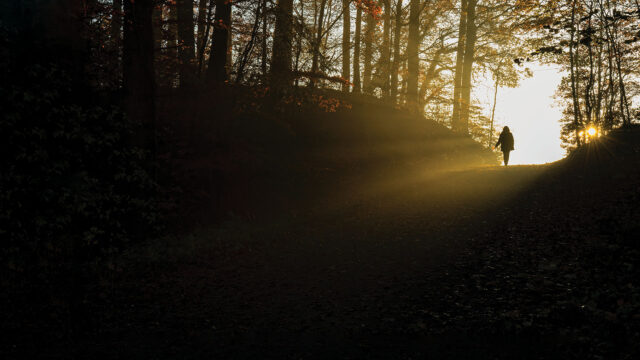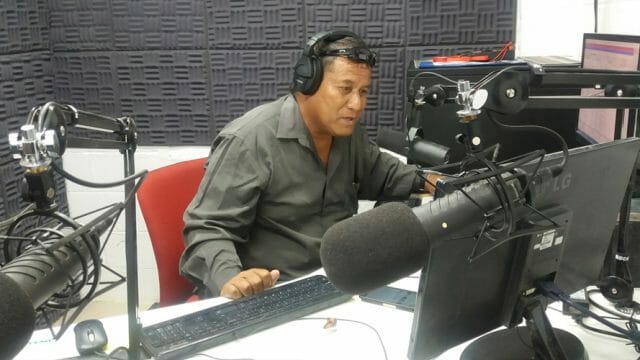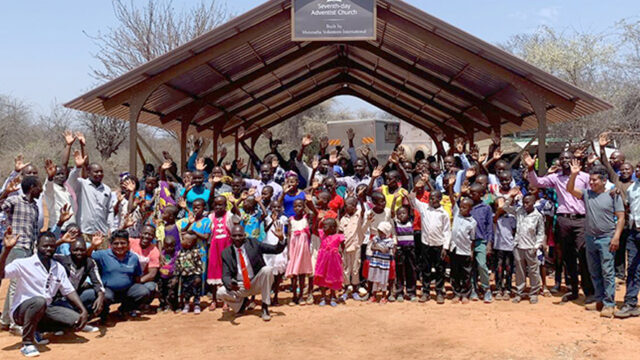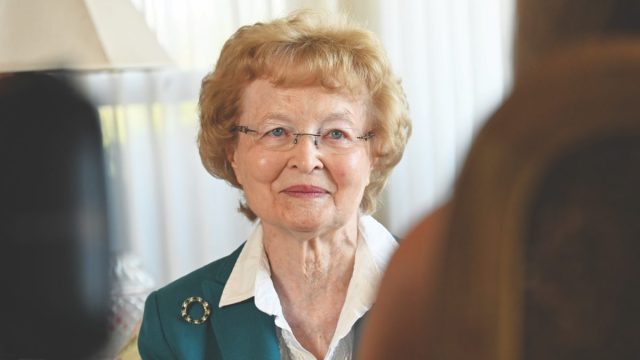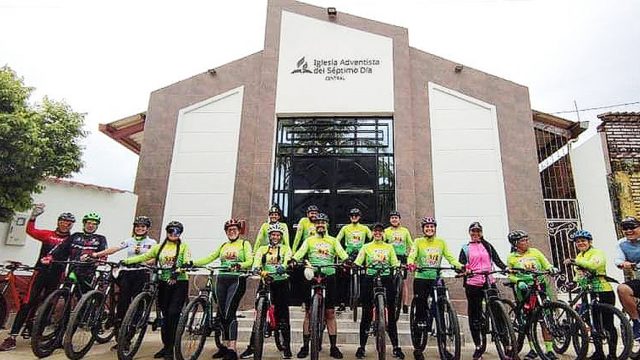Maranatha Volunteer International’s visits transform Kenyan village for the better.
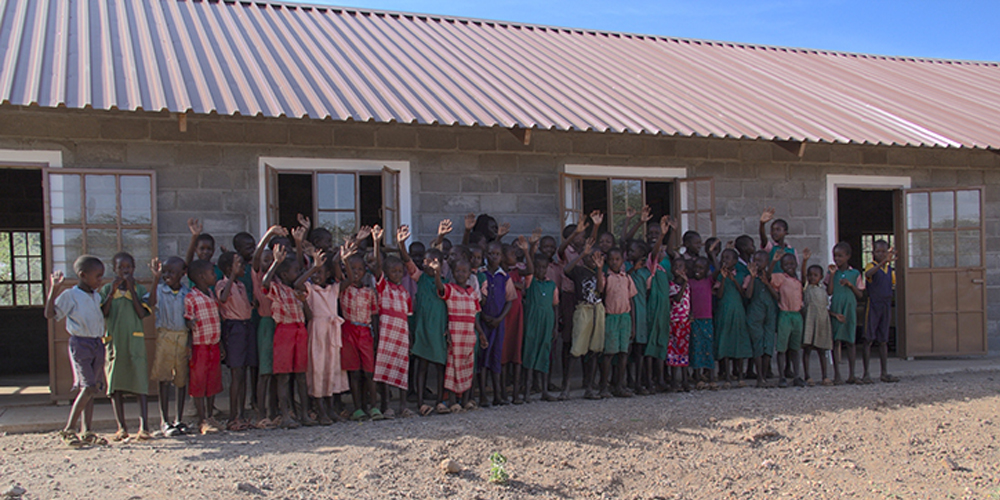
In 2016, when Maranatha Volunteers International leadership first visited the village of Chumviere in Kenya, the only permanent structure was a few classrooms. Otherwise, the sprawling, dry landscape was dotted with the usual acacia trees, thorn bushes, and manyattas — mud homes typical of the Kenyan bush. Today, Chumviere looks quite different.
After a series of return visits from Maranatha, the village now has a school campus, a One-Day Church, and a water well. The first project took place in July 2016, when the Seventh-day Adventist Church in Kenya requested a place of worship in Chumviere for the small congregation that had been meeting under a tree. The church was among the first round of construction projects that Maranatha completed in Kenya.
Then, when Maranatha launched a water program in Kenya in 2018, Chumviere was on the list of places in urgent need of a well. Women in the community were having to make a three-mile round trip daily to fetch water for their families. During the rainy season, they scooped water from a muddy, seasonal river, which was closer but had contaminated water. That August, Maranatha drilled a well in the village.
A year later, Maranatha broke ground on a project to expand the school at Chumviere. Volunteers were scheduled to build four more classrooms in 2020. When COVID hit, all the volunteer projects were canceled, but local crews continued to work on the campus, and in November 2020, the Chumviere school was completed and dedicated. Already, the school’s enrollment has jumped from 62 to 132 students.
“People will now get an education in that village … because of what the church is doing and what Maranatha is doing,” Timothy Guto, director of Stewardship Ministries for the Adventist Church in central Kenya, said.
The establishment of the school, church, and especially the water well may also influence the life patterns of the people in Chumviere, according to Guto. The Turkana are a semi-nomadic tribe that moves with the seasons, searching for water and food to sustain their livestock. This might now change, he explained, as the presence of reliable, clean water could draw a permanent group of people to the school and the local church.
“Now that people have a source of clean water, they might want to stay in the area,” he said. “It is a pattern I have seen in other villages too.”
Maranatha has been working in Kenya since 2016, building One-Day Churches, schools, and water wells. As of early 2021, more than 650 structures have been completed.
The original version of this story was posted by Maranatha Volunteers International.


